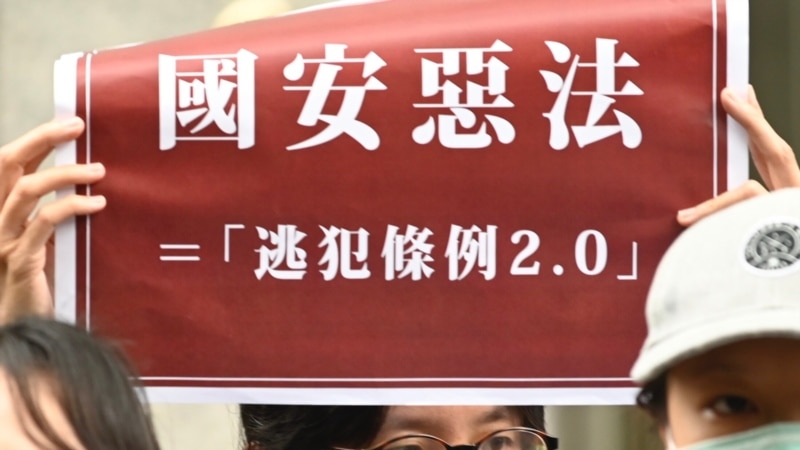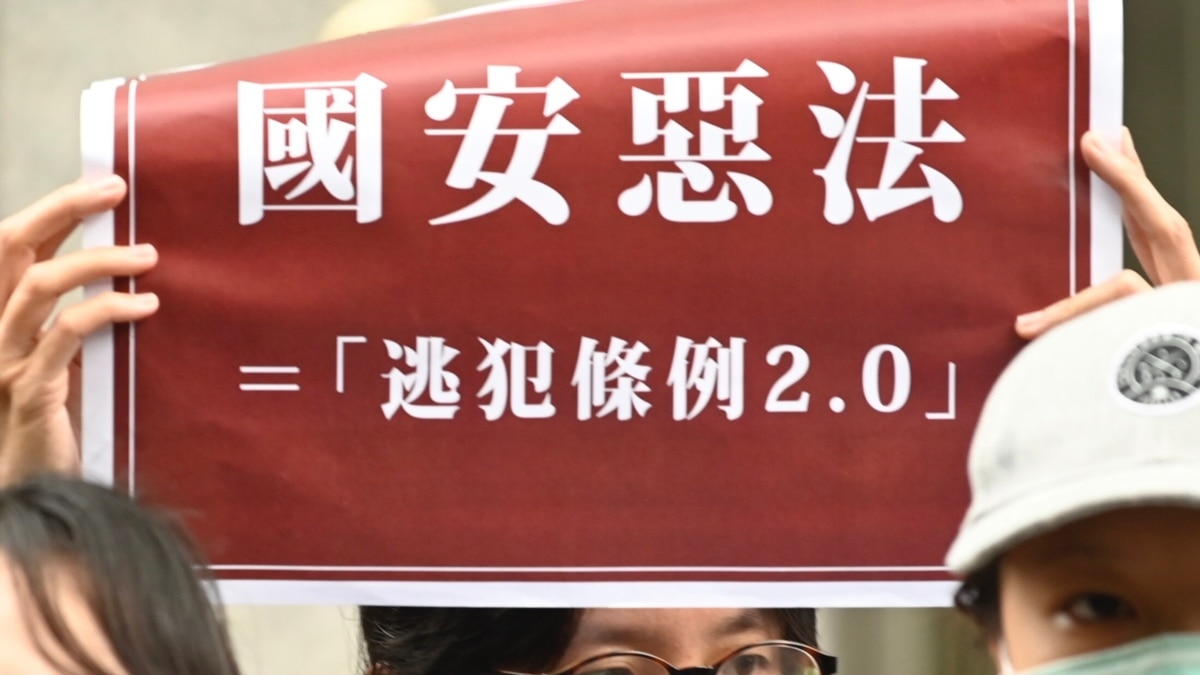
Hong Kong unveiled a new draft national security law on Friday that expands the definition of crimes such as sabotage, sedition and state secrets, and sets out harshest penalties of up to life in prison.
The bill builds on China’s 2020 national security law imposed a year after pro-democracy protests.
Lawmakers are expected to pass the draft bill within weeks and the law could have implications for many sectors in the global financial hub, including business, academia, law, diplomacy and media, observers said.
The new offenses cover a range of areas, from serious acts affecting sovereignty, including rebellion or the initiation of armed conflict against Chinese armed forces, to everyday crimes, including possession of publications considered seditious. Authorities said the law would apply outside Hong Kong.
Main crimes and penalties
sedition
Rights advocates and lawyers say the category is so broad that anyone in possession of any publication deemed inflammatory, such as a book or article, could be charged with the crime.
*Any inciting behavior, speech or publication intended to cause hatred, contempt or dissatisfaction against China or the Hong Kong government is punishable by up to 7 years in prison.
*If such conduct is committed in collusion with “external forces” (which may include foreign governments, foreign political parties, international organizations, or companies linked to foreign governments), the penalty increases to 10 years.
*The offense of possessing a publication with seditious intent is also punishable by 3 years in prison, although the bill does not give specific examples of what such material might be.
*Law enforcement officers may enter any premises, including using reasonable force, to remove or destroy inflammatory publications.
*The law may also lower the threshold for conviction for sedition, no longer requiring prosecutors to prove intent to incite public disorder or violence.
* Authorities ignored calls from some media advocates and rights groups to stamp out sedition.
National secret
*Illegal possession of state secrets, the disclosure of which may harm national security, is punishable by at least three years in prison. The definition of secrets is broad and includes secrets in the fields of national defense, diplomacy, economic development or science and technology.
*Illegally obtaining such secrets is punishable by five years in prison, and leaving Hong Kong with such state secrets is punishable by seven years in prison.
*While the government has limited public interest protections for state secrets, some lawyers say the law gives authorities and courts wide discretion in the matter.
external interference
*The crime of colluding with outside forces to interfere in areas such as government policy, legislative bodies, courts or elections is punishable by 14 years in prison.
spy
*Acts such as entering prohibited places and intercepting information or documents used by external forces are punishable by 20 years in prison.
Crime of treason
*A variety of actions are punishable by up to life imprisonment, including joining external armed forces at war with China or using force to endanger China’s unity. Persons participating in military or armed “exercises” by external powers without official permission can be sentenced to five years in prison. Lawyers said that could include those who received military training from foreign governments.
uprising
*Crimes such as participation in armed forces in conflict with China or acts endangering China’s unification are punishable by up to life imprisonment.
mutiny
*Inciting members of the Chinese armed forces to abandon allegiance to China, organize or launch rebellions is punishable by up to life imprisonment.
destroy
*Anyone who colludes with outside forces to damage or cripple public infrastructure can face up to life in prison.
How will this law affect the rights of defendants?
Right-wingers say the new law will further weaken legal protections for defendants accused of national security crimes.
The right to counsel, the presumption of innocence and the right to bail have long been important features of Hong Kong’s common law tradition. Under China’s 2020 national security law, many pro-democracy politicians and activists have been denied bail under stricter rules.
Authorities are expected to take further steps under the new law.
Eric Lai, a researcher at Georgetown University’s Asia Law Center, said: “The most dramatic changes in the legislative bill will be issues related to due process and fair trials.”
“It appears that the government ignored almost all objections during the consultation period. Vague and broad offenses and definitions remain in the bill,” he said.
Subject to approval by a magistrate, the suspect’s detention period will be extended to 14 days from the current maximum of 48 hours. Access to a lawyer may also be refused by a magistrate due to circumstances endangering national security, and the magistrate may issue a warrant authorizing a senior police officer to restrict the person’s consultation with a lawyer. The defendant’s movement may also be restricted.
“This is a very extreme restriction on the legal rights of those arrested in Hong Kong,” Lai added.
Follow us on Google news ,Twitter , and Join Whatsapp Group of thelocalreport.in













